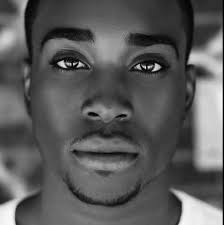
WHEN BEING TALL AND DARK IS SEEN AS A THREAT
Admin 0 Comments Uncategorized
I have lost count of the many times I have heard women, both family members and friends coo over men they considered “tall, dark, and handsome.” And for some of those women, the taller and darker, the better! These characteristics were always discussed as something to admire in men, but what happens when those very characteristics put those same men’s lives in danger?
In April, as America watched the trial of Derek Chauvin (the police officer on trial for murdering George Floyd), the defense attorney discussed George Floyd being 6’4 and (insert), in comparison to the height of Derek Chauvin to demonstrate that Chauvin felt threatened and powerless against George Floyd. Later in the trial, the jury heard a recording from Chauvin himself following the killing of George Floyd stating, “We got to control this guy because he’s a sizable guy, and it looks like he is probably on something…”
These statements got me thinking about other black men that had been killed by the police where height and weight were used as justifications to use lethal force. In July 2014, Eric Garner 6’3, 350 pounds was killed for selling loose cigarettes. Despite him telling the officers he could not breathe, his struggling to simply breathe caused officers to see him as a threat so much so that they choked the very life out of him. In 2017, Alton Sterling 6’3’, 300 pounds was shot and killed by two officers while selling cd’s outside of a convenience store.
I began to wonder how frequently race and height have been a factor in the frequency of police interactions. To my suprise, studies have shown that “Black men at a disproportionately high rate. We then demonstrated that, for perceivers who endorse stereotypes that Black people are more threatening than White people, tall Black men seem especially threatening.” Discrimination based on skin complexion, also known as colorism, has resulted in those with darker skin being treated more harshly, overlooked for opportunities, and stereotyped negatively than those with lighter skin tones. In an article published by The Guardian, entitled “Cops only tackled me and my friend’: why a dark skin tone makes activism dangerous,” one activist shares their story of how police have treated darker skinned activists and organizers as opposed to those that are lighter skinned. The author writes “Black folks in general have anxiety around law enforcement. But when you’re dark-skinned like me, it seems to give cops a full pass to disrespect you. I’ve seen lighter-skinned black organizers be able to talk through a hostile situation with them. That doesn’t happen to me. I am keenly aware that my dark skin will lead me to be perceived as especially aggressive, regardless of my actions.” The author goes on to share explicit incidents of darker skinned activists being singled out and mistreated simply because of their skin complexion.
Discrimination is extremely complex. Many people will say that the discrimination of black people is horrible, but those experiences vary based on skin complexion, and the reality is that some black people have it worst than others simply because their genetic makeup lead them to be larger or darker than their counterparts. This is a hurtful but real truth we must face and ensure that we are not perpetuating colorism subconsciously.
Written by: Sasha Legette